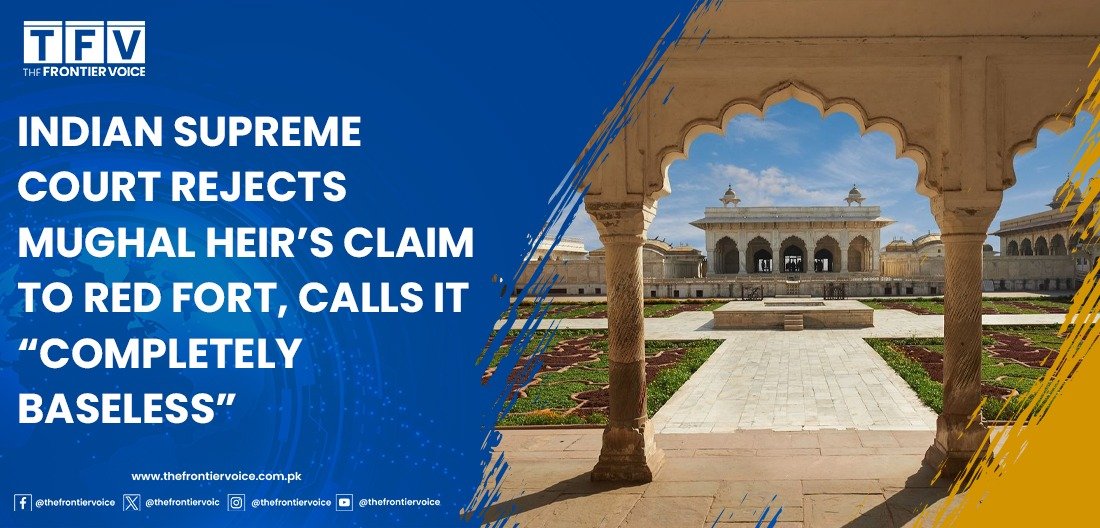POLITICS
Indian Supreme Court Rejects Mughal Heir’s Claim to Red Fort, Calls It “Completely Baseless”

The Indian Supreme Court on Monday dismissed a petition by Sultana Begum, who claimed to be the widow of the great-grandson of Mughal emperor Bahadur Shah Zafar, seeking ownership of the iconic Red Fort in Delhi. The bench, comprising Chief Justice of India Sanjiv Khanna and Justice PV Sanjay Kumar, labeled the claim “completely baseless” and questioned its selective focus, sarcastically asking, “Why only the Red Fort? Why not Fatehpur Sikri? Why leave them also?” The petition was outright rejected as misconceived.
Sultana Begum argued that the Red Fort, a 17th-century Mughal stronghold, was forcibly seized by the British East India Company after the First War of Independence in 1857, following the exile of Bahadur Shah Zafar. She claimed the Government of India continues to illegally occupy the fort, violating her fundamental and constitutional rights under Article 300A, which protects against unlawful deprivation of property. Begum sought either possession of the fort or compensation for its alleged illegal occupation since 1857. She cited the government’s recognition of her late husband, Mirza Mohammed Bedar Bakht, as Zafar’s heir in 1960, when he was granted a pension, later transferred to her after his death in 1980.
The court, however, found the claim legally untenable due to an inordinate delay of over 150 years. Begum’s counsel argued that the Delhi High Court had previously dismissed her plea in 2021 and 2024 solely on grounds of delay, not merits, and urged the Supreme Court to do the same. The bench rejected this request, dismissing the petition on its merits. The Delhi High Court had noted in 2021 that even if Zafar was wrongfully deprived of the fort, the petition’s delay of 164 years—when predecessors were aware of the situation—rendered it unsustainable. A subsequent appeal in 2024 was dismissed for a 900-day filing delay, deemed inadequately explained despite Begum’s claims of ill health and personal loss.
The Supreme Court’s ruling ends Begum’s legal pursuit, which began in 2021, reinforcing that historical claims cannot override legal limitations after such significant delays. The decision underscores the Red Fort’s status as a national heritage site under the Archaeological Survey of India, not a private property subject to ancestral claims.
